Rick Steves'
LONDON 2014
Rick Steves & Gene Openshaw
Rick Steves'
LONDON 2014
Blow through the city on a double-decker bus, and take a pinch-me-Im-in-London walk through the West End. Ogle the crown jewels at the Tower of London, hear the chimes of Big Ben, and see the Houses of Parliament in action. Cruise the Thames River, and take a spin on the London Eye. Hobnob with the tombstones in Westminster Abbey, visit with Leonardo, Botticelli, and Rembrandt in the National Gallery, and explore Dumbledores office at the film studios in Leavesden. Enjoy Shakespeare in a replica of the Globe Theatre and marvel at a glitzy, fun musical at a modern-day theater. Whisper across the dome of St. Pauls Cathedral, then rummage through our civilizations attic at the British Museum. And sip your tea with pinky raised and clotted cream dribbling down your scone.
You can enjoy some of Europes best people-watching at Covent Garden, and snap to at Buckingham Palaces Changing of the Guard. Just sit in Victoria Station, Piccadilly Circus, or a major Tube station and observe. Tip a pint in a pub with a chatty local, and beach-comb the Thames. Spend one evening at a theater and the other nights catching your breath.
London is more than its museums and landmarks. Its the L.A., D.C., and N.Y.C. of Britaina living, breathing, thriving organism...a coral reef of humanity. The city has changed dramatically in recent years, and many visitors are surprised to find how un-English it is. ESL (English as a second language) seems like the citys first language, as white people are now a minority in major parts of the city that once symbolized white imperialism. Arabs have nearly bought out the area north of Hyde Park. Chinese takeouts outnumber fish-and-chips shops. Eastern Europeans pull pints in British pubs. Many hotels are run by people with foreign accents (who hire English chambermaids), while outlying suburbs are home to huge communities of Indians and Pakistanis. London is a city of eight million separate dreams, inhabiting a place that tolerates and encourages them. With the English Channel Tunnel and discount airlines making travel between Britain and the Continent easier than ever, London is learningsometimes fitfullyto live as a microcosm of its formerly vast empire.
Use this legend to help you navigate the maps in this book.
The city, which has long attracted tourists, seems perpetually at your service, with an impressive slate of sights, entertainment, and eateries, all linked by a great transit system. Youll still see the effects of a banner year for London2012when the city hosted both the Olympics and the Queens Diamond Jubilee celebration for her 60th year on the throne. Consequently, this already spiffy city is even more spiffed up.
Rick Steves London 2014 is a personal tour guide in your pocket. Better yet, its actually two tour guides in your pocket: The coauthor of this book is Gene Openshaw. Since our first Europe through the gutter trip together as high school buddies in the 1970s, Gene and I have been exploring the wonders of the Old World. An inquisitive historian and lover of European culture, Gene wrote most of this books self-guided museum tours and neighborhood walks. Together, Gene and I keep this book current and accurate (though, for simplicity, from this point we will shed our respective egos and become I).
In this book, youll find the following chapters:
Orientation to London includes specifics on public transportation, helpful hints, local tour options, easy-to-read maps, and tourist information. The Planning Your Time section suggests a schedule for how to best use your limited time.
Key to This Book
Updates
This book is updated every yearbut things change. For the latest, visit www.ricksteves.com/update, and for a valuable list of reports and experiencesgood and badfrom fellow travelers, check www.ricksteves.com/feedback.
Abbreviations and Times
I use the following symbols and abbreviations in this book:
Sights are rated:
| Dont miss |
| Try hard to see |
| Worthwhile if you can make it |
| No rating | Worth knowing about |
Tourist information offices are abbreviated as TI, and bathrooms are WCs. To categorize accommodations, I use a Sleep Code (described on ).
Like Europe, this book uses the -hour clock. Its the same through 12:00 noon, then keeps going: 13:00, 14:00, and so on. For anything over 12, subtract 12 and add p.m. (14:00 is 2:00 p.m.).
When giving opening times, I include both peak season and off-season hours if they differ. So, if a museum is listed as May-Oct daily 9:00-16:00, it should be open from 9:00 a.m. until 4:00 p.m. from the first day of May until the last day of October (but expect exceptions).
If you see a  symbol near a sight listing, it means that sight is described in far greater detail elsewhereeither with its own self-guided tour, or as part of a self-guided walk.
symbol near a sight listing, it means that sight is described in far greater detail elsewhereeither with its own self-guided tour, or as part of a self-guided walk.
For transit or tour departures, I first list the frequency, then the duration. So, a train connection listed as 2/hour, 1.5 hours departs twice each hour, and the journey lasts an hour and a half.
Sights in London describes the top attractions and includes their cost and hours.

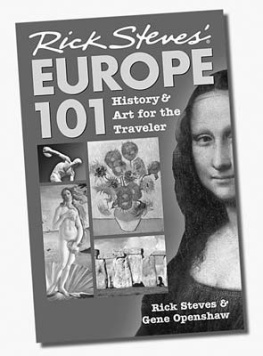
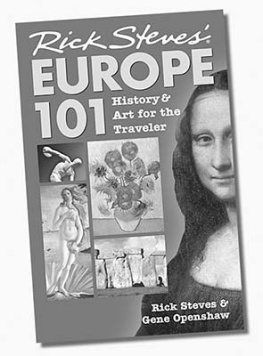
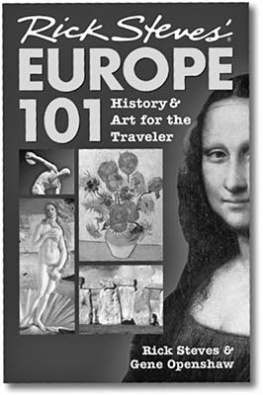
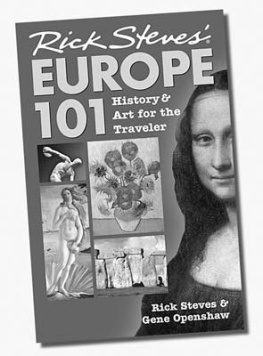
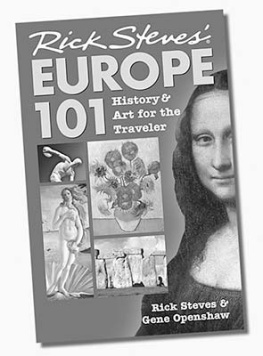


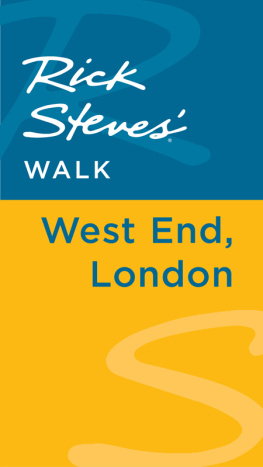
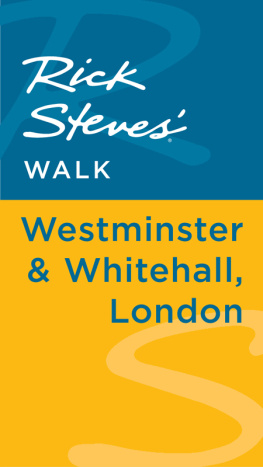
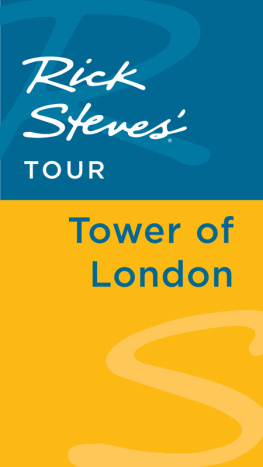
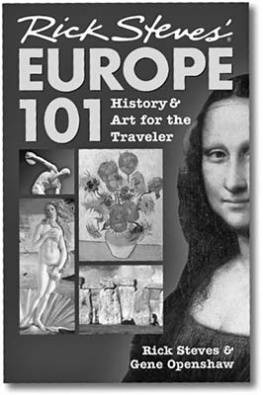
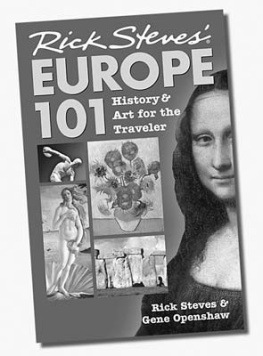

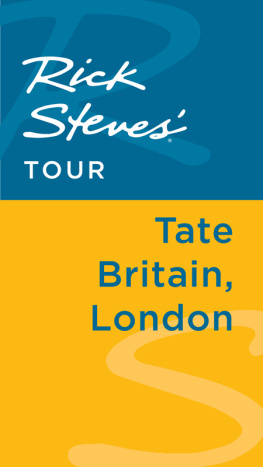
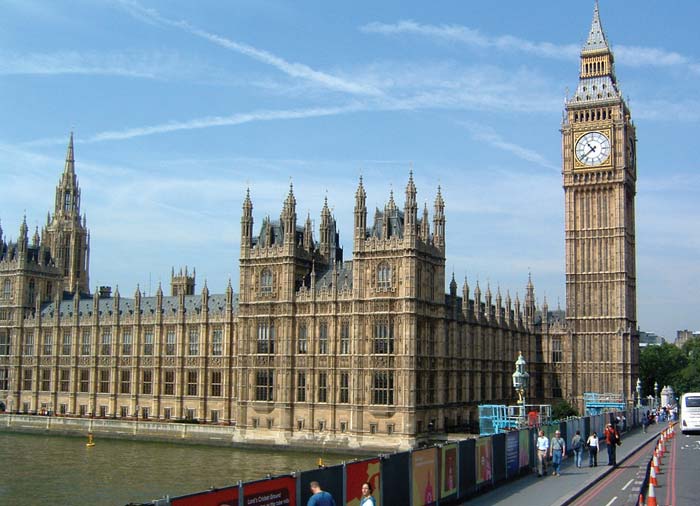
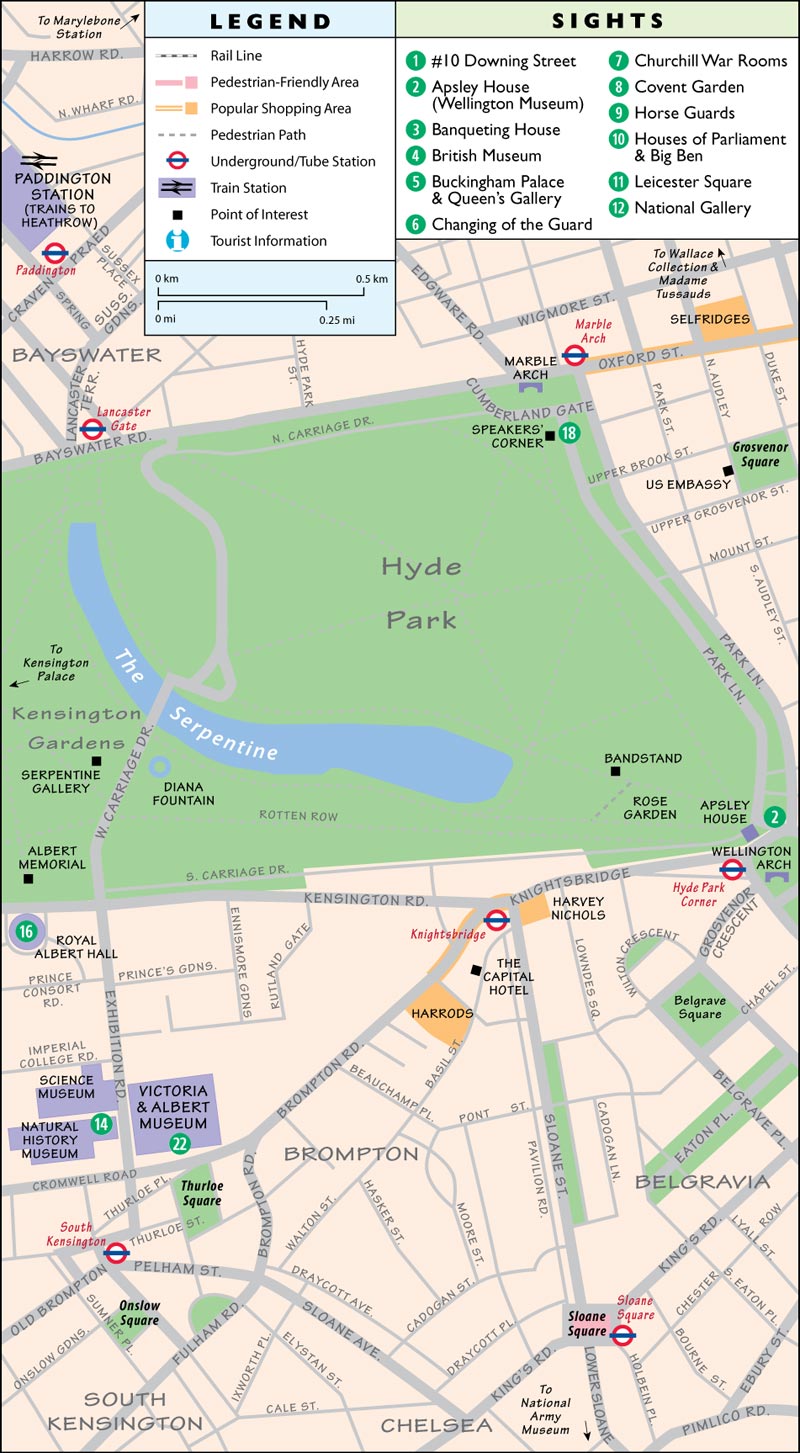
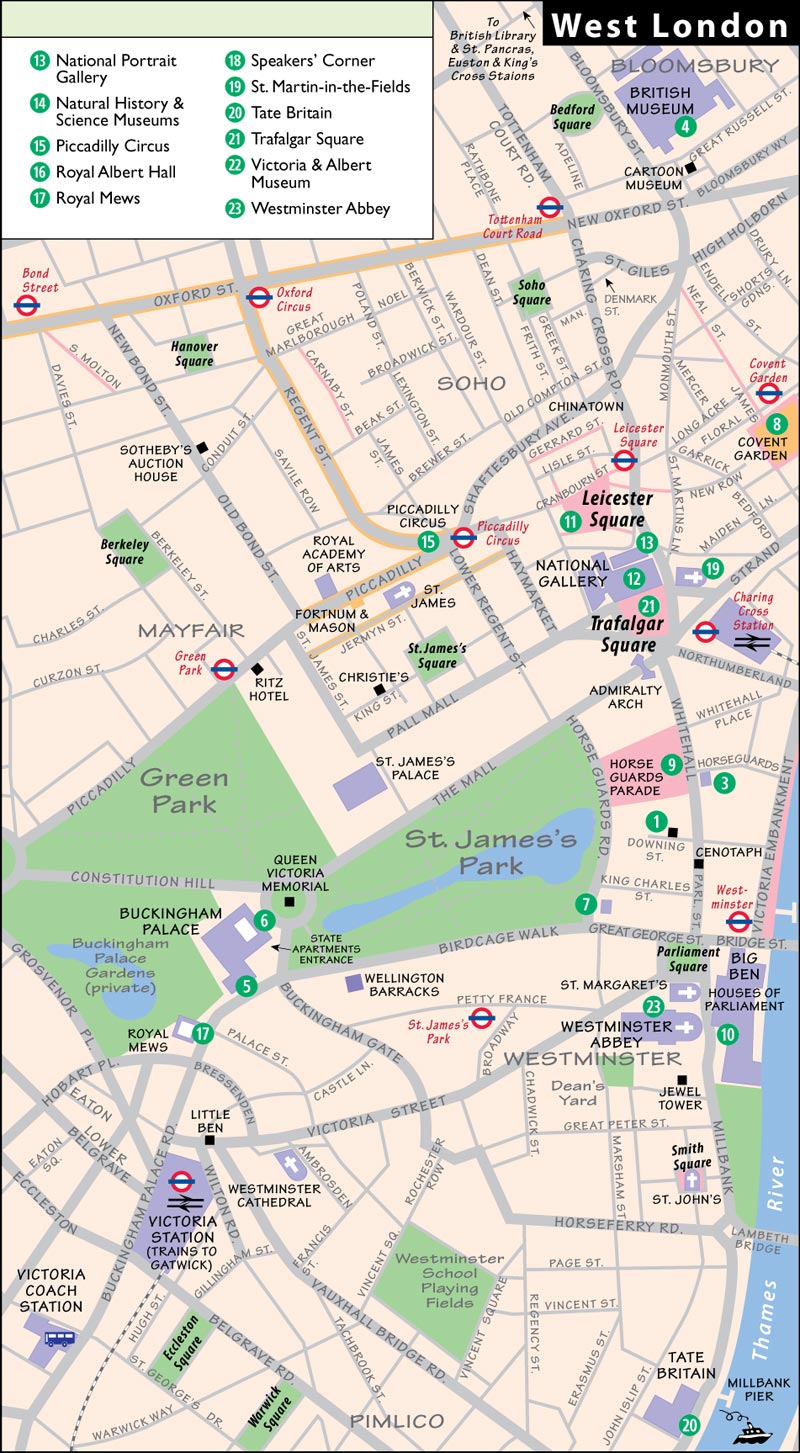

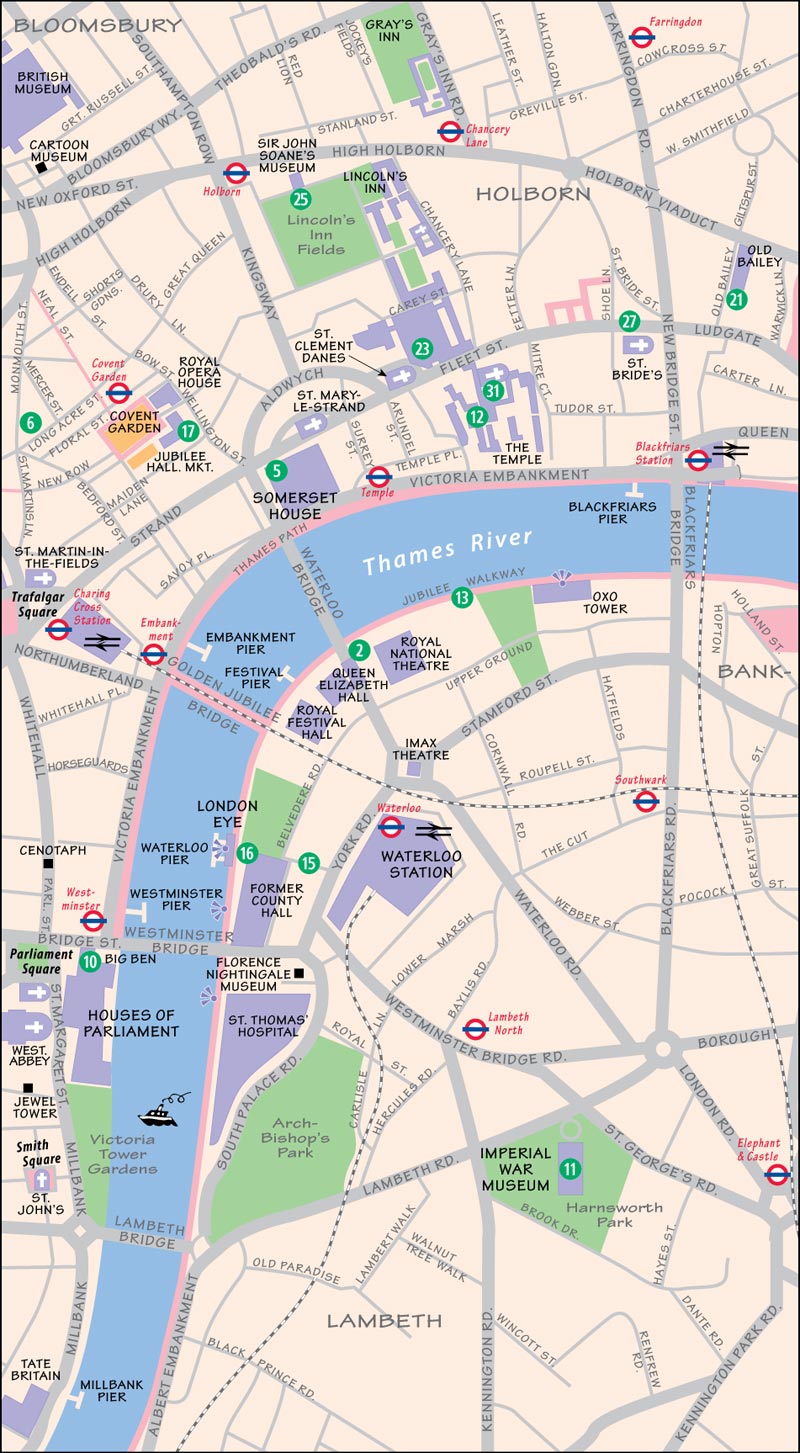
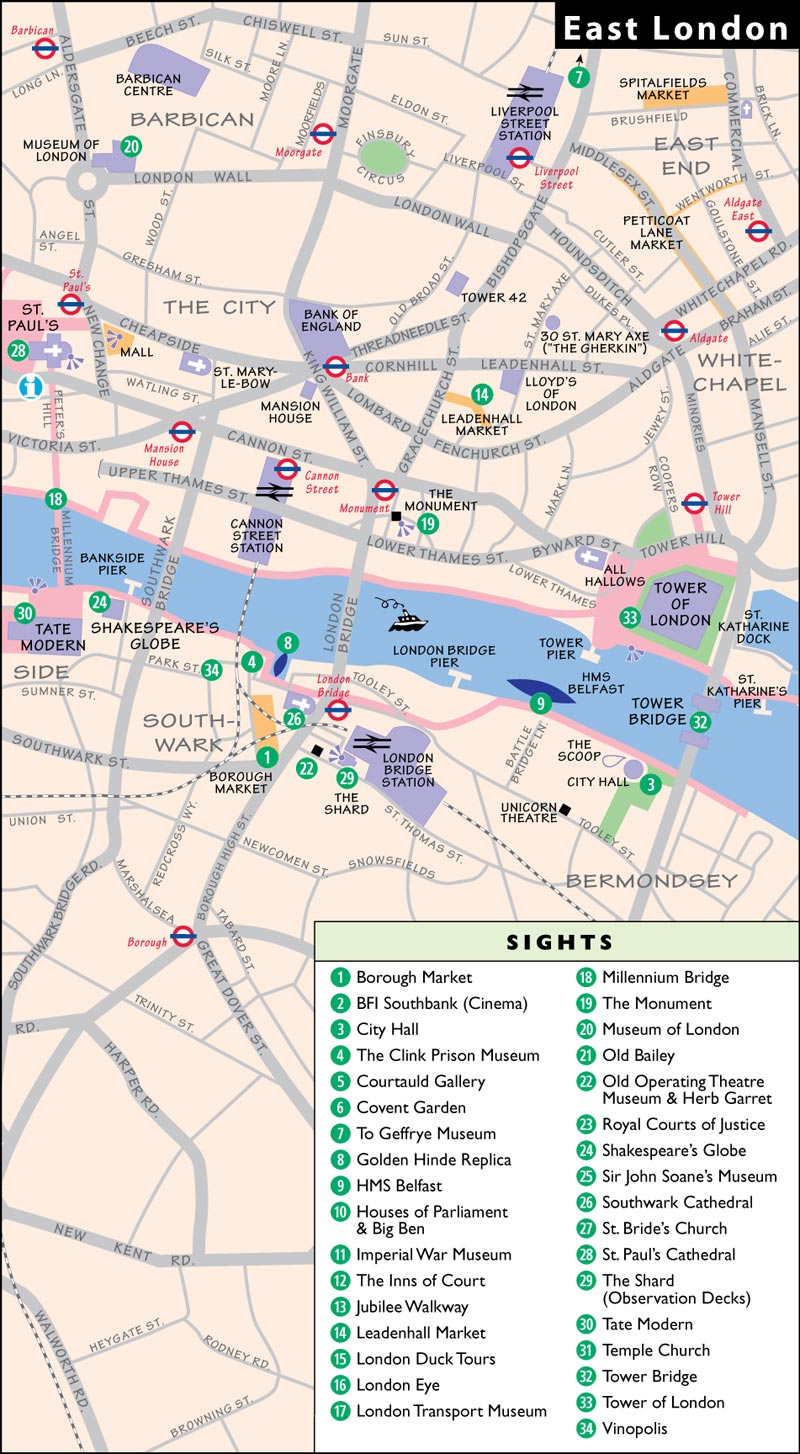

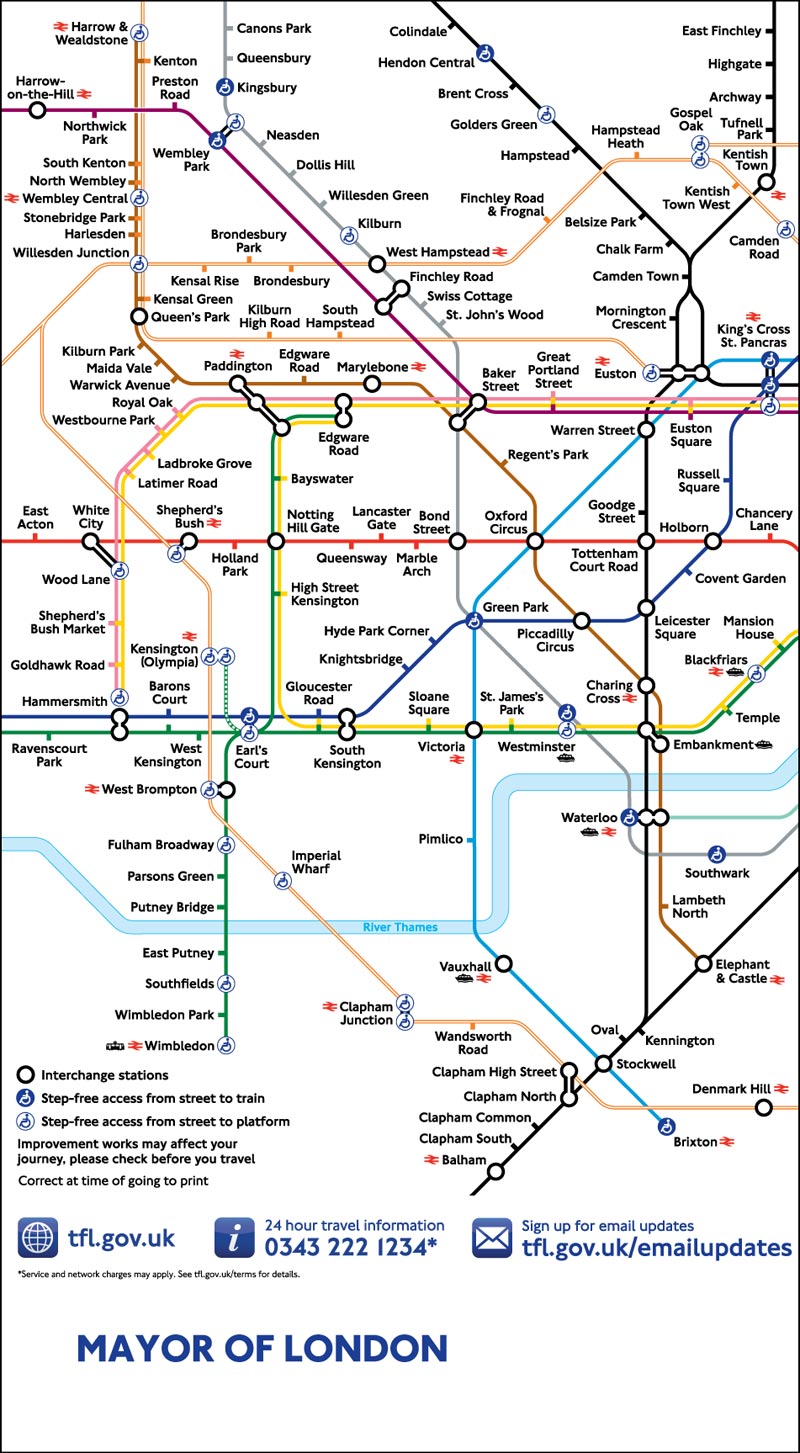
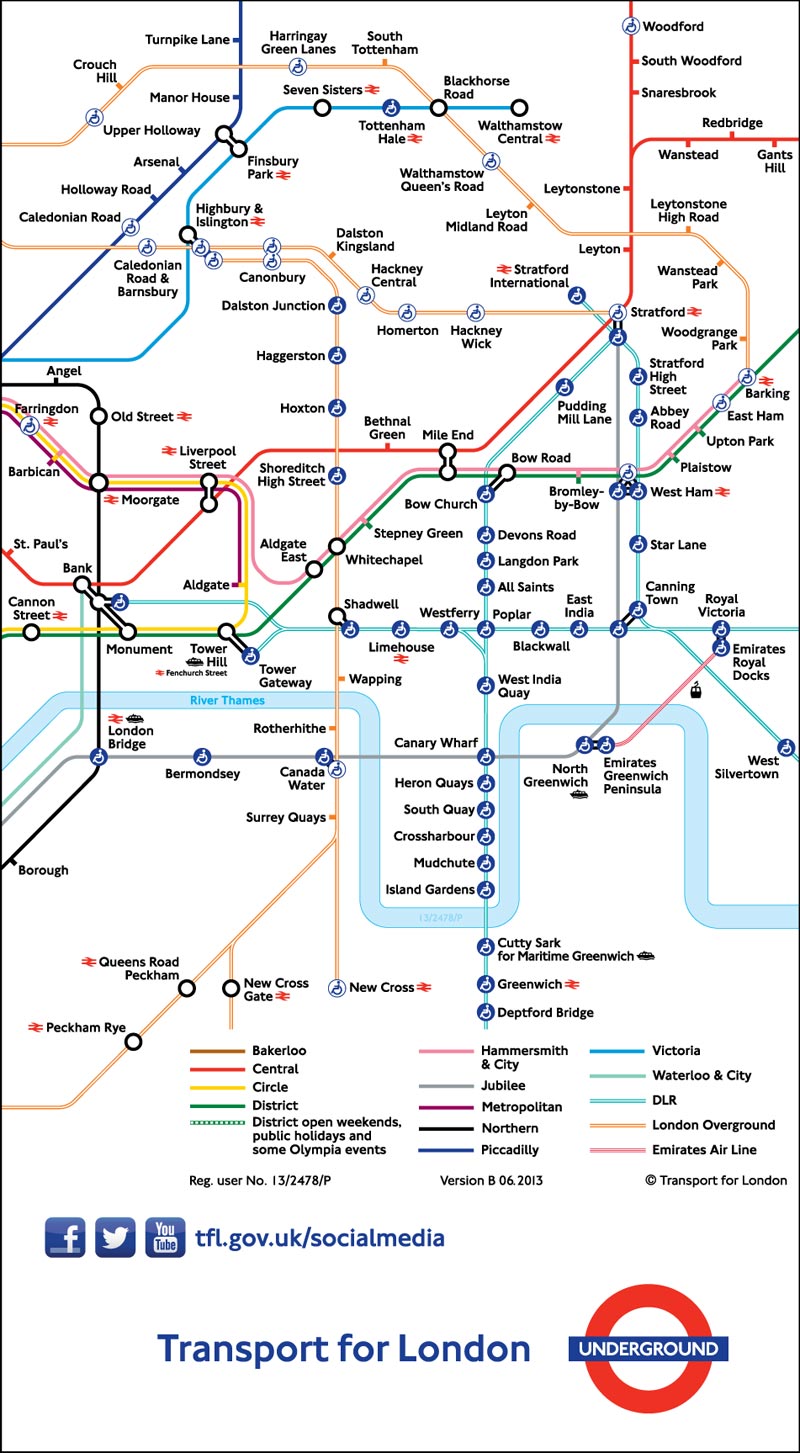
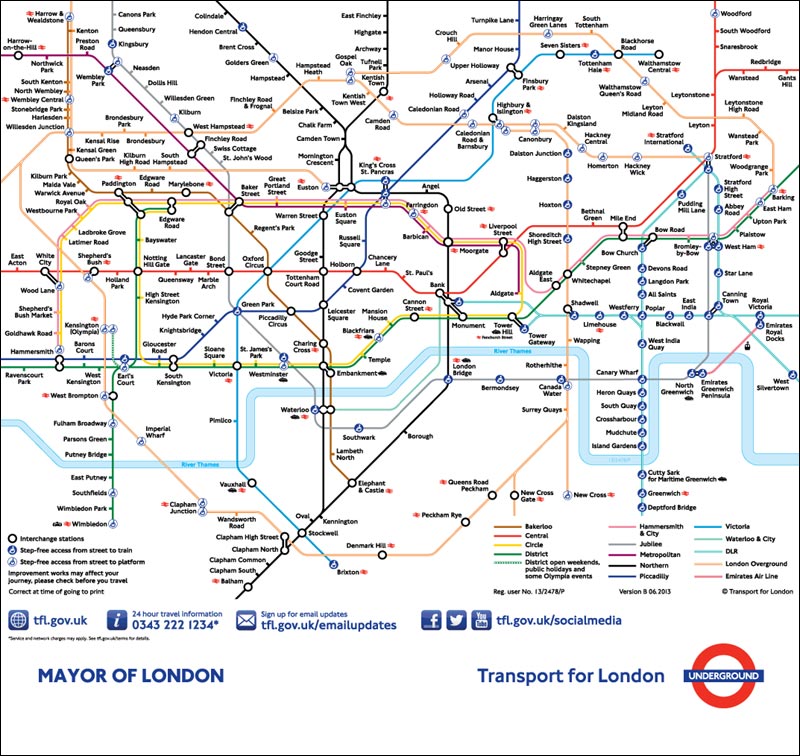
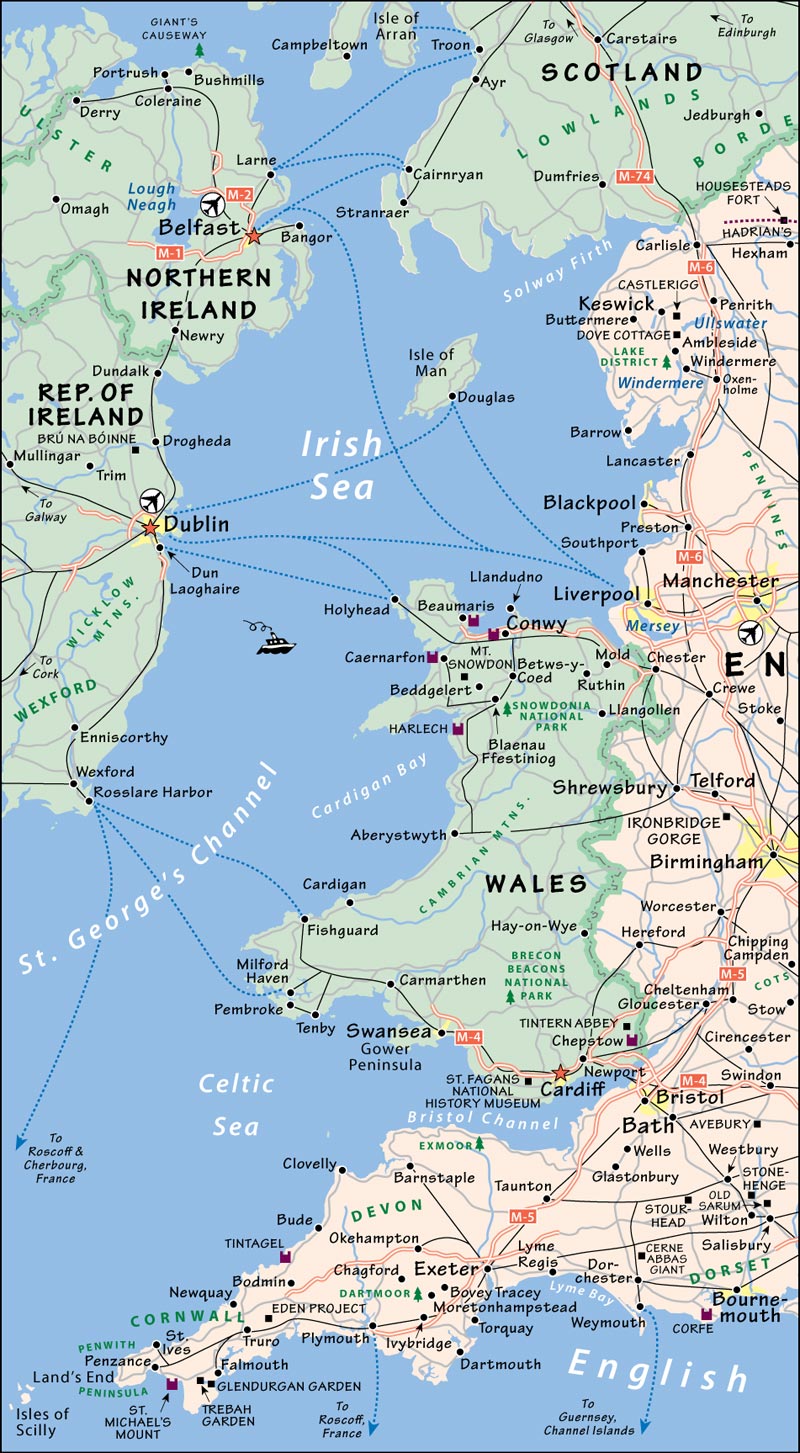
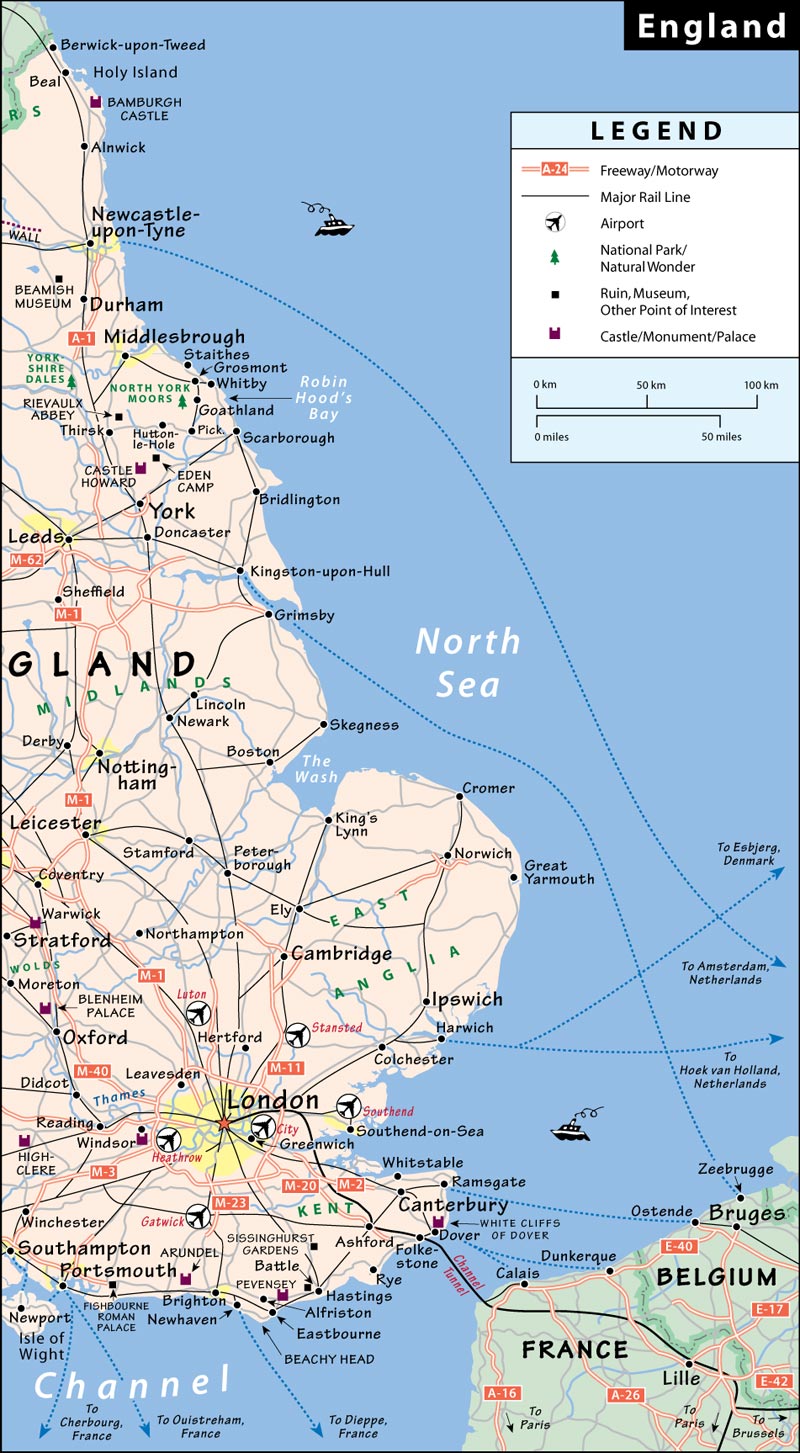


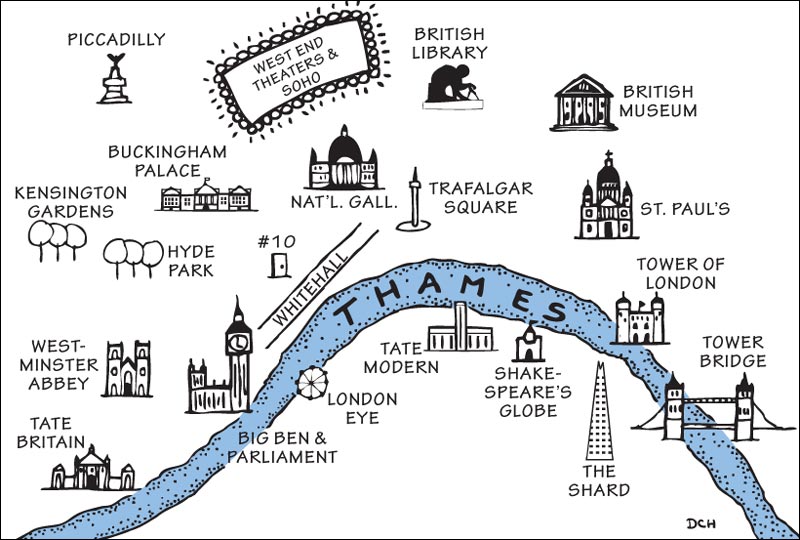
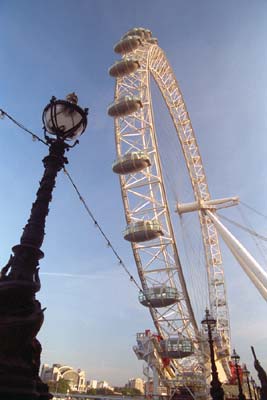
 symbol near a sight listing, it means that sight is described in far greater detail elsewhereeither with its own self-guided tour, or as part of a self-guided walk.
symbol near a sight listing, it means that sight is described in far greater detail elsewhereeither with its own self-guided tour, or as part of a self-guided walk.